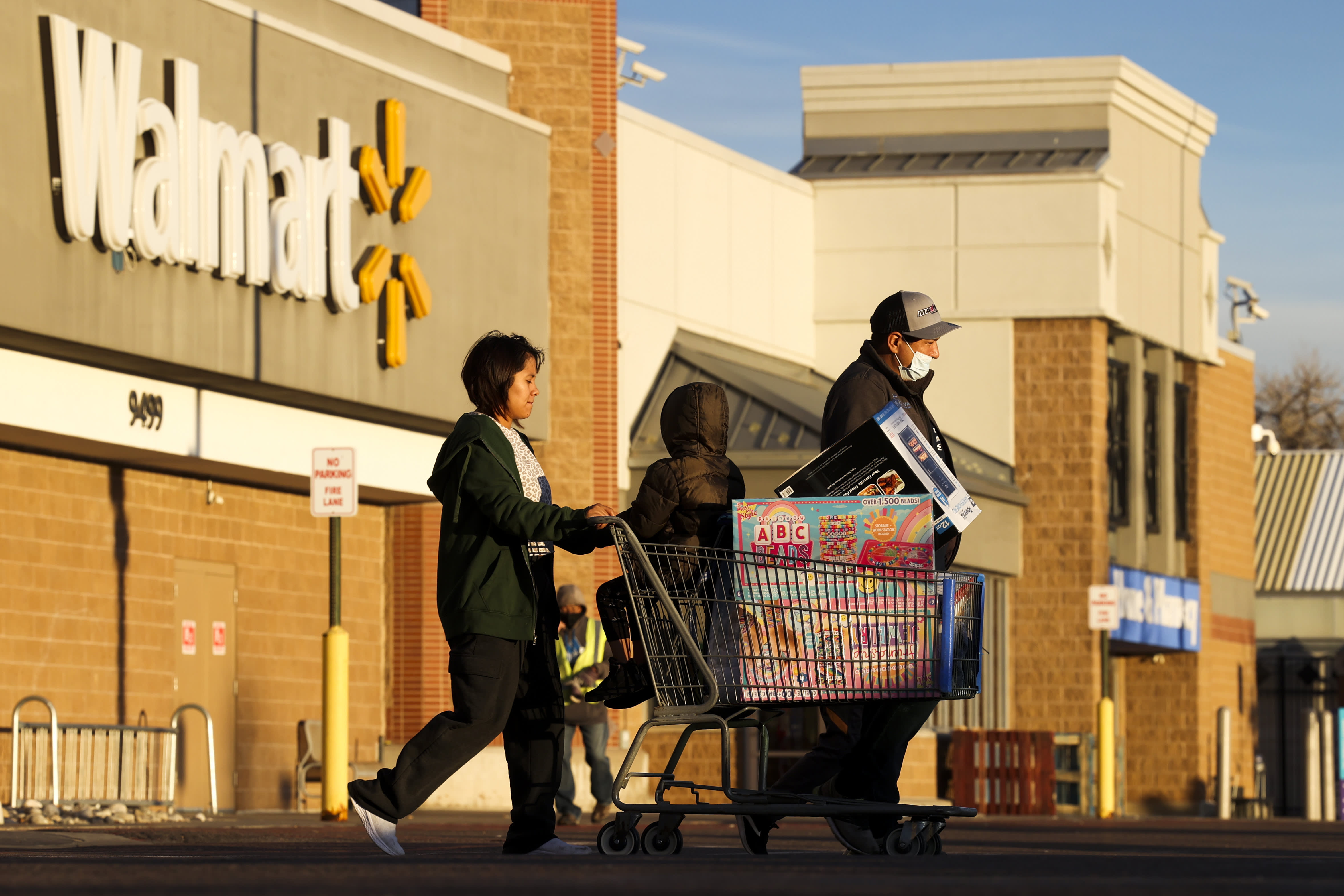Retail sales dropped 1.9% in December as higher prices caused consumers to curb spending

A family of shoppers walk out of Walmart with a full shopping cart on November 26, 2021 in Westminster, Colorado.
Michael Ciaglo | Getty Images
Retail sales fell much more than expected in December as surging prices took a big bite out of spending, the Commerce Department reported Friday.
The advance monthly sales report to close out the year showed a decline of 1.9%, considerably worse than the Dow Jones estimate for just a 0.1% drop.
Excluding autos, sales fell 2.3%, a number that also fell well short of expectations for a 0.3% rise.
In addition to the weak December numbers, the November gain was revised down to 0.2% from the initially reported 0.3% increase.
Considering that the sales numbers are not adjusted for inflation, the data point to a slow ending to what had otherwise been a strong 2021 in which sales rose 16.9% from the pandemic-scarred 2020.
The consumer price index rose 0.5% for the month, bringing the year-over-year gain to 7%, the highest since June 1982. Wholesale price also rose, climbing 9.7% in the 12-month period for the biggest calendar-year rise since data was kept going back to 2010.
Online spending took the biggest hit as a share of overall spending, with nonstore retailers reporting a plunge of 8.7% for the month. Furniture and home furnishing sales declined 5.5% and sporting goods, music and book stores saw a 4.3% drop.
Surging omicron cases exacted damage across the board as consumer activity waned.
Restaurants and bars, which posted a 41.3% annual gain in 2021 to lead all categories, saw a decline of 0.8% for the month. Gas stations were a close second for the year, with a 41% surge in sales, but saw a 0.7% decrease in December as fuel costs moved lower. Gasoline prices fell 0.5% to close out a year when prices at the sump soared 49.6%.
Only two categories saw increases for the month: miscellaneous store retailers, which rose 1.8% and building materials and gardening centers, which posted a 0.9% gain.
A separate Labor Department report Friday showed import prices fell 0.2% for the month, against expectations for an increase of 0.2%, the first negative number since August and due in good part to a 6.5% fall in petroleum prices.
That number provided some hope that the inflation surge could be ebbing, though much of the move came from falling petroleum prices..
Federal Reserve officials in recent days have been stressing the importance of heading off inflation, with multiple policymakers saying they expect to start raising interest rates as soon as March. The Biden administration has joined central bank leaders in placing much of the blame for rising prices on pandemic-specific factors such as a huge demand for goods over services and supply-chain issues.
The price surge, though, has come following unprecedented levels of cash injections to the economy from both fiscal and monetary policy.



